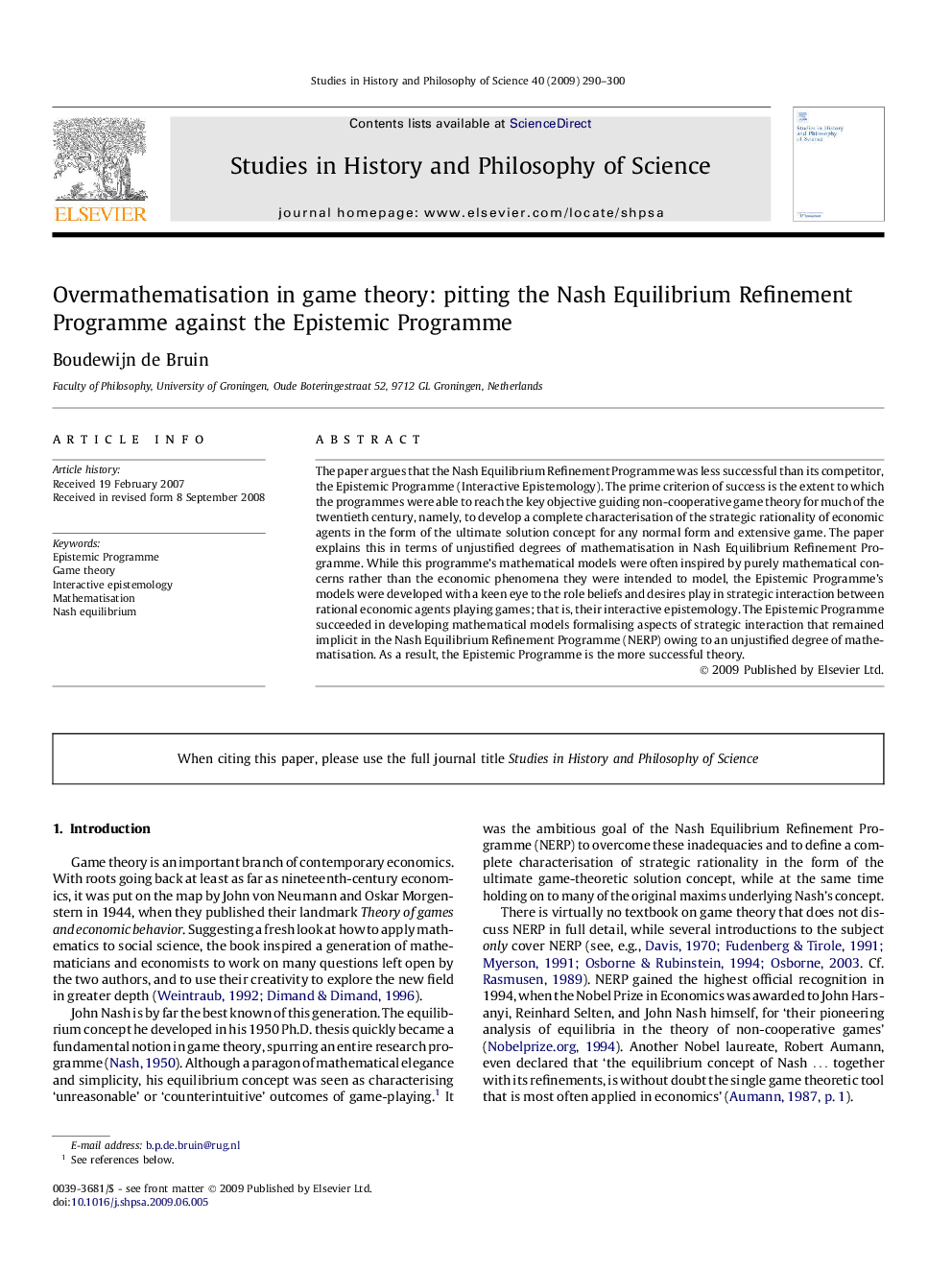| کد مقاله | کد نشریه | سال انتشار | مقاله انگلیسی | نسخه تمام متن |
|---|---|---|---|---|
| 1160739 | 1490355 | 2009 | 11 صفحه PDF | دانلود رایگان |

The paper argues that the Nash Equilibrium Refinement Programme was less successful than its competitor, the Epistemic Programme (Interactive Epistemology). The prime criterion of success is the extent to which the programmes were able to reach the key objective guiding non-cooperative game theory for much of the twentieth century, namely, to develop a complete characterisation of the strategic rationality of economic agents in the form of the ultimate solution concept for any normal form and extensive game. The paper explains this in terms of unjustified degrees of mathematisation in Nash Equilibrium Refinement Programme. While this programme’s mathematical models were often inspired by purely mathematical concerns rather than the economic phenomena they were intended to model, the Epistemic Programme’s models were developed with a keen eye to the role beliefs and desires play in strategic interaction between rational economic agents playing games; that is, their interactive epistemology. The Epistemic Programme succeeded in developing mathematical models formalising aspects of strategic interaction that remained implicit in the Nash Equilibrium Refinement Programme (NERP) owing to an unjustified degree of mathematisation. As a result, the Epistemic Programme is the more successful theory.
Journal: Studies in History and Philosophy of Science Part A - Volume 40, Issue 3, September 2009, Pages 290–300